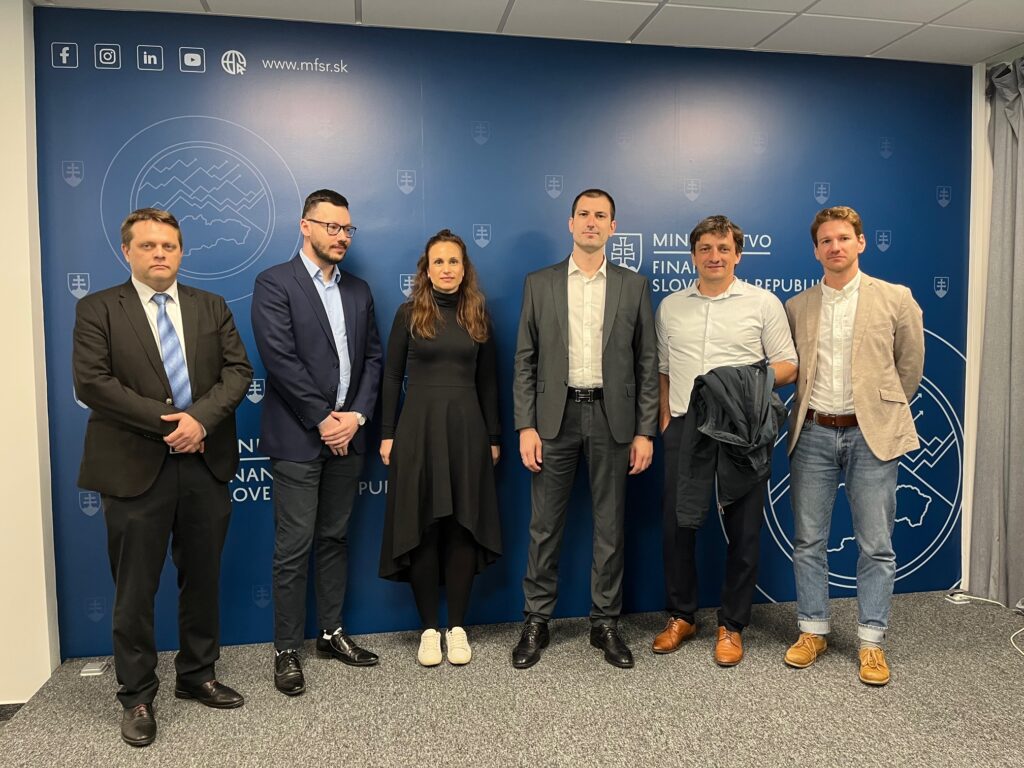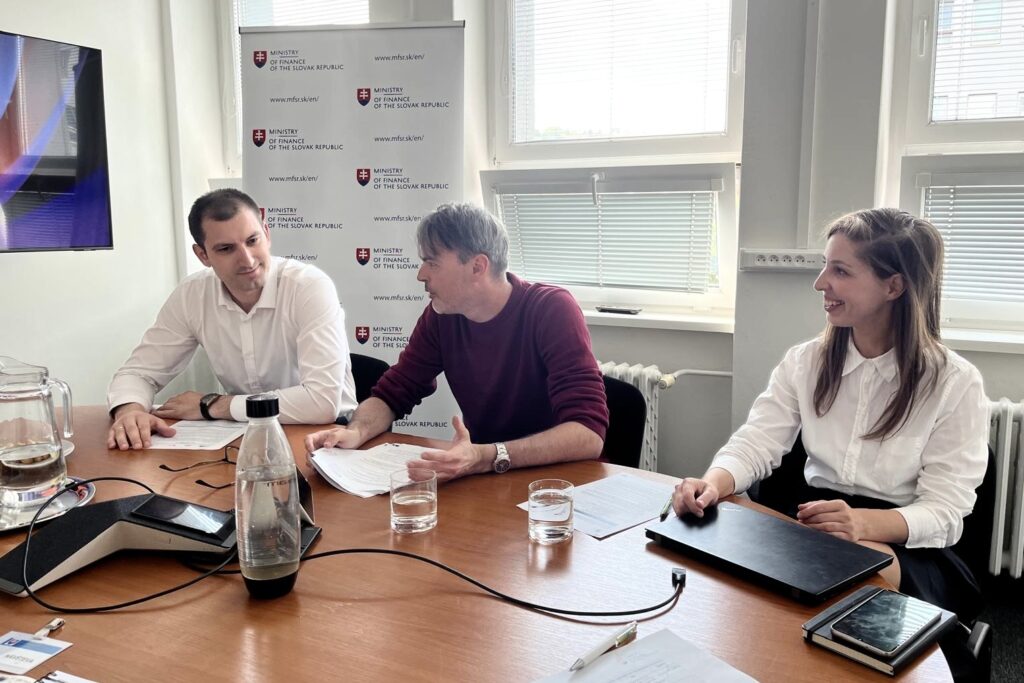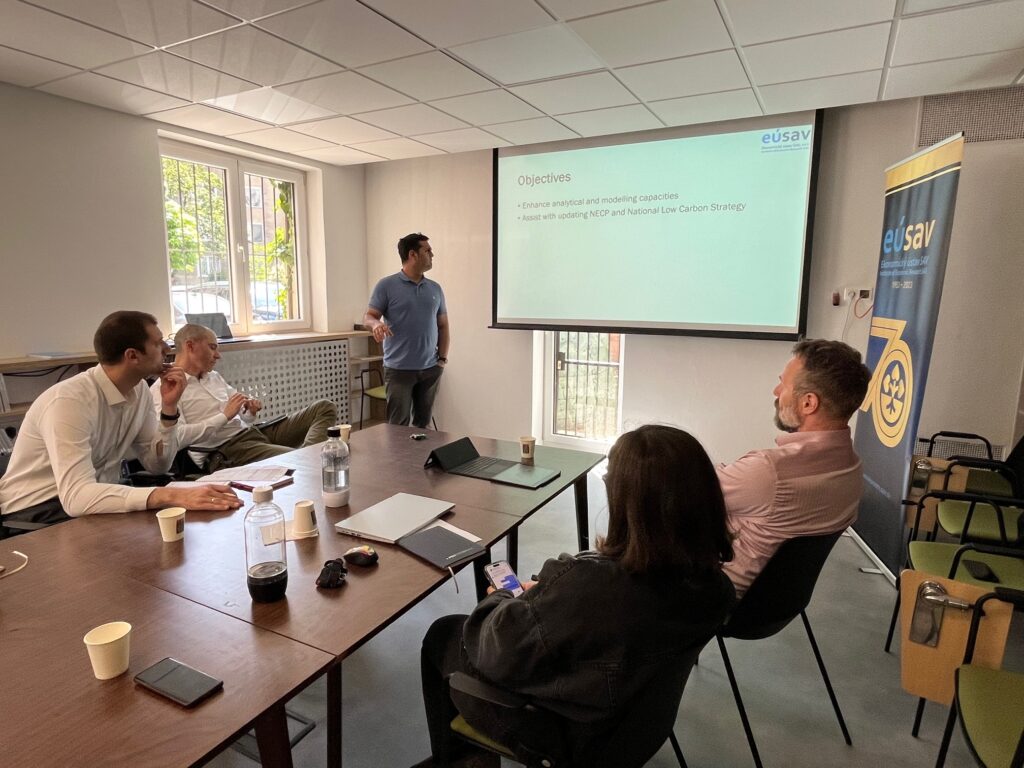In mid-May 2025, a high-level representative from the Ministry of Finance of Montenegro visited Slovakia for an expert exchange focused on advancing macroeconomic and fiscal policymaking.
Slovak journey from transition economy to EU member state has required significant reforms in its public finance architecture. Consequently, Slovakia has become a source of inspiration for Montenegro recent reforms as it progresses in its EU accession journey.
Mr. Miloš Mišković, Director General of the Directorate for Macroeconomic and Fiscal Analyses and Projections at the Montenegro’s Ministry of Finance, visited Slovakia to gain deeper understanding of the role and practices of analytical work within Slovakia planning processes and budgeting, so that he could transfer this knowledge to his work in Montenegro.
During the two-day study visit in Bratislava, he met with key Slovak institutions: the Institute for Financial Policy and the Value for Money Division of the Slovak Ministry of Finance, and the Institute of Economic Research of the Slovak Academy of Sciences.
 Learning from Slovak Best Practices
Learning from Slovak Best Practices
“Macroeconomic and fiscal planning in Slovakia is a clearly defined process with broad stakeholder involvement and measurable outcomes,” Mišković noted. “This can serve as an example for Montenegro.”
Throughout the visit, he explored how Slovakia structures its macroeconomic forecasting, tax strategies, long-term fiscal planning, and evidence-based public investment decisions. Presentations and discussions focused on tools and methodologies used to model economic trends, conduct spending reviews, and manage public investment portfolios.
The Slovak experts also shared experiences related to Value for Money approaches, inter-institutional coordination, and the role of data in shaping national policy. In turn, Montenegro identified several practices that could help strengthen internal analytical capacities, improve communication with policymakers, and assess the long-term impact of fiscal decisions.
 “Some specific aspects of Slovakia’s work processes – especially in policy evaluation and coordination—can be adapted to the Montenegrin context,” said Mišković. “This includes strengthening the role of the Directorate in advising policymakers and improving our reporting systems.”
“Some specific aspects of Slovakia’s work processes – especially in policy evaluation and coordination—can be adapted to the Montenegrin context,” said Mišković. “This includes strengthening the role of the Directorate in advising policymakers and improving our reporting systems.”
Supporting Reform Through Knowledge Exchange
The study visit in Slovakia was more than a technical consultation; it was a concrete example of how targeted international cooperation can accelerate progress in public finance reform. It also demonstrated how countries with shared transition experiences can learn from each other in practical, actionable ways.
By connecting Montenegro with Slovak expertise, the Public and Private Finance for Development programme continues to support smart and resilient economic governance in partner countries.
“This exchange allowed me to connect with counterparts who have advanced knowledge and experience in planning and evaluating fiscal policy reforms,” Mišković concluded.
Learn more about our programme and initiatives in Montenegro here.


